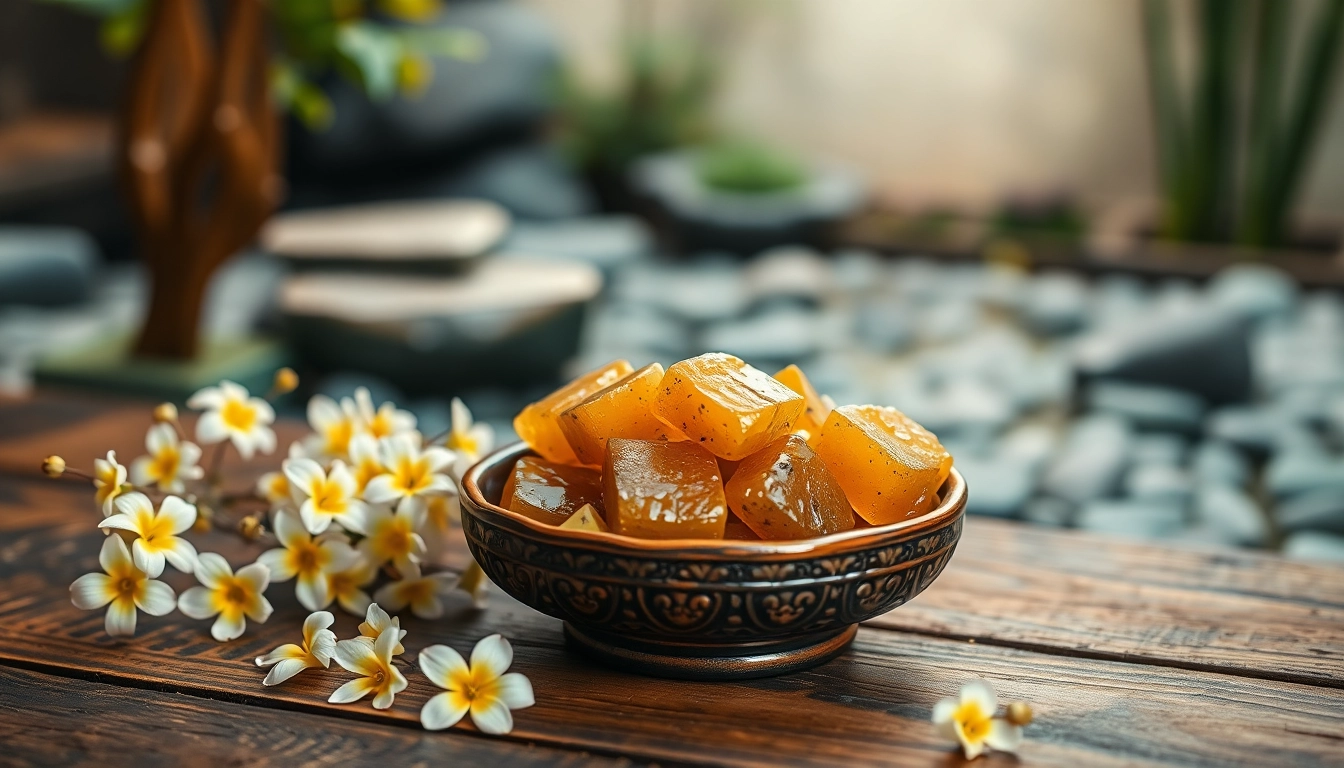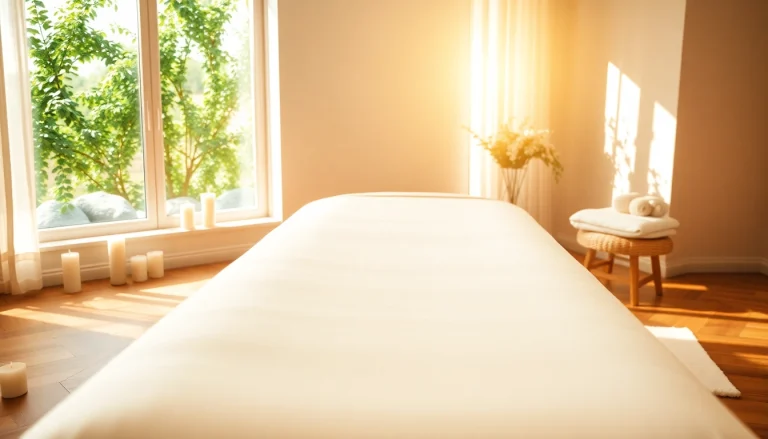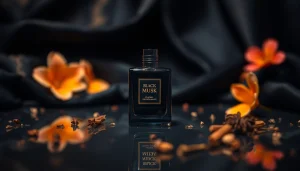Understanding Louban Dakar: The Essence of Frankincense
What is Louban Dakar?
Louban Dakar, commonly known as frankincense, refers specifically to a high-quality resin obtained from the Boswellia sacra tree, a species native to the Arabian Peninsula and parts of Africa. This fragrant resin has been cherished by various cultures for centuries due to its aromatic properties and potential health benefits. When burned, Louban Dakar releases a rich, woody fragrance with subtle citrus notes, often used in spiritual rituals, aromatherapy, and as a natural incense. Its versatility and historical significance make it a fascinating subject worthy of exploration. For those looking to understand the depth of this cherished resin, louban dakar offers both sensory and wellness potential.
The Origin and History of Louban Dakar
The history of Louban Dakar is intertwined with the history of trade and spirituality in the Middle East. Frankincense has been harvested for thousands of years, prominently featured in ancient Egyptian rituals as a sacred incense and in the embalming process. The resin was so valuable that it was traded alongside gold and myrrh, as noted in biblical texts. The primary supply region for Louban Dakar has traditionally been Oman; here, the dry climate and rocky terrain provide ideal conditions for the Boswellia trees to thrive.
Historically, the routes taken by traders transporting Louban Dakar were known as the Incense Route, linking the Arabian Peninsula to the Mediterranean. Over centuries, this resin has permeated diverse cultures, from the spiritual practices of the Sufis in Islam to the therapeutic applications in traditional Chinese medicine. Its enduring popularity attests to its captivating properties and significant role in both cultural rituals and trade history.
Cultural Significance in Various Traditions
Across cultures, Louban Dakar has been revered not just as a fragrant substance but also as a spiritual emblem. In Islamic traditions, incense is often used during prayer and reflection, symbolizing purification and the presence of the Divine. Sufi practices may incorporate Louban into ritualistic dances and gatherings, believing that its smoke aids in connecting with spiritual realms.
In Hinduism, frankincense has been used in temples as part of daily worship and ceremonies, symbolizing devotion and sacrificial offerings. Its scent helps to create a mindful atmosphere, conducive to meditation and prayer. Interestingly, in various African cultures, Louban has served both as a means of honoring ancestors and as part of traditional healing practices, promoting both physical and spiritual health.
Health Benefits of Louban Dakar
Physical Health Benefits
The physical health benefits associated with Louban Dakar are extensive and well-documented in herbal medicine traditions around the world. The resin possesses anti-inflammatory properties, making it beneficial for individuals suffering from conditions like arthritis, asthma, and other inflammatory disorders. Research has indicated that compounds in the resin may help inhibit the production of inflammatory markers in the body.
Moreover, Louban Dakar is believed to support respiratory health. When inhaled, the aromatic compounds can help clear congestion, soothe coughs, and improve overall respiratory function. Traditional uses include boiling the resin and inhaling the steam to relieve ailments like bronchitis and sinus infections.
Mental Health and Well-Being
The psychological benefits of Louban Dakar are equally noteworthy. Its aromatic profile has been shown to reduce stress and anxiety; studies suggest that the smell activates certain brain regions associated with emotion and well-being. When used in aromatherapy, Louban Dakar can create an atmosphere of calmness, which is especially beneficial in high-stress environments.
Furthermore, Louban Dakar may also enhance cognitive function and memory. Research indicates that the olfactory stimulation provided by such resins can improve focus and clarity of thought, making it a worthy addition to study routines or work environments considering its potential to elevate mood and enhance mental performance.
Traditional Medicinal Uses
In traditional medicine, Louban Dakar has played a vital role in treating various ailments. Its use as a natural anti-anxiety remedy and mood enhancer has been documented in both Asian and African cultures. Herbalists often recommend it for digestive issues, claiming that it can soothe discomfort and ease symptoms like gas and bloating.
Additionally, Louban Dakar’s antiseptic properties make it a staple in natural healing practices, particularly for treating skin sores and infections. Some cultures blend it with oils to create topical applications, soothing inflammation and promoting healing in wounds. This multifaceted usage illustrates how deeply embedded Louban Dakar is within historical healing practices and its continued relevance in holistic health.
Using Louban Dakar in Daily Life
Incorporating Louban Dakar in Aromatherapy
Aromatherapy is one of the most popular ways to utilize Louban Dakar, tapping into its comforting and invigorating properties. The resin can be burned as incense, used in oil form, or combined with diffusers to create an aromatic environment in any space. When diffused, the scent permeates the air, promoting relaxation and clarity in both personal and professional settings.
For those who prefer a more hands-on approach, creating essential oils with Louban Dakar can be quite rewarding. By combining the resin with carrier oils like jojoba or coconut, individuals can craft custom blends that suit their personal needs—be it calming, energizing, or healing.
Louban Dakar in Rituals and Meditative Practices
Incorporating Louban Dakar into spiritual practices enhances focus and attunement during meditation. The practice of burning the resin before or during meditation can help deepen the experience. Many meditation practitioners find that the calming aroma aids in quieting thoughts and fostering an atmosphere conducive to reflection and inner peace.
Moreover, cultural rituals often incorporate Louban Dakar during significant life events, from weddings to funerals, symbolizing purification and the transition of spirits. This spiritual utility emphasizes its sacred nature and capacity to connect individuals with ancestral and spiritual realms.
Creating Your Own Incense Blends
For those inclined toward creativity, crafting personalized incense blends using Louban Dakar can be an enriching endeavor. Blending it with other aromatic resins, herbs, or essential oils can yield unique fragrances tailored to specific intentions. For instance, combining Louban Dakar with myrrh enhances its calming properties, while adding citrus peels can brighten the blend, making it invigorating.
To create an incense blend, it’s essential to start with a base, subsequently adding in the desired aromatic ingredients, and then grinding them to a fine powder. This preparation can then be shaped into sticks or cones or simply used in a burner. Engaging in this process not only reveals the practical applications of Louban Dakar but fosters a more intimate relationship with the ingredients that enhance spiritual and emotional well-being.
Buying and Storing Louban Dakar
Where to Purchase Authentic Louban Dakar
Purchasing high-quality Louban Dakar can be done through various channels. Specialized herbal shops, health food stores, and reputable online retailers are among the best places to find authentic resin. When shopping online, it’s crucial to read customer reviews and ensure retailers source their products ethically, given the environmental concerns surrounding overharvesting of Boswellia trees.
For those who prefer a more direct approach, attending local herbal fairs or markets often yields unique finds, along with knowledgeable vendors who can provide insights into the product’s origin and benefits.
How to Store Frankincense for Longevity
Proper storage is critical for preserving the quality and potency of Louban Dakar. The resin should be stored in a cool, dark place, ideally in an airtight container to prevent exposure to light and moisture, which can degrade its quality over time. Keeping it away from strong odors and quick changes in temperature additionally ensures its aromatic properties remain intact.
For powdered forms, glass containers work best, while larger chunks of resin can be kept in parchment paper or cloth bags to maintain their integrity. These storage practices help extend the shelf life of Louban Dakar, making it accessible for long-term use.
Identifying Quality Louban Dakar Products
When selecting Louban Dakar, visual examination is crucial. Authentic resin should exhibit a translucent quality with slight variations in color, ranging from pale yellow to brown. The fragrance should be rich and complex, indicative of its purity. If possible, consider testing the resin by lightly heating it; genuine Louban Dakar emits a pleasant, aromatic scent, whereas subpar products may leave a burnt or acrid smell.
Additionally, always inquire about the source of the resin; trusted suppliers will have transparency regarding the harvesting process, ensuring sustainable practices and preserving Boswellia trees for future generations. This mindful purchasing reflects not only an appreciation for fine herbal products but also a commitment to environmental stewardship.
Louban Dakar: Myths and Facts
Common Misconceptions about Louban Dakar
Despite its revered status, several misconceptions surround Louban Dakar. One common myth is that all frankincense is the same; however, the quality can vary significantly between regions and species. Another misconception is that Louban Dakar is only used for its aromatic benefits, while, in reality, its medicinal properties are profound and widely recognized across cultures.
Additionally, some believe that frankincense can cure all ailments, whereas it’s essential to view it as a complementary remedy rather than a standalone solution for health issues. Understanding these misconceptions fosters a more accurate appreciation of Louban Dakar, allowing individuals to utilize its benefits effectively.
Scientific Studies Supporting its Uses
Scientific research backs many of the traditional claims surrounding Louban Dakar. Several studies highlight its potential as an anti-inflammatory agent, particularly for conditions like arthritis. Research has also suggested its efficacy in promoting relaxation and reducing anxiety, correlating its traditional use in aromatherapy with modern findings in behavioral health.
Furthermore, investigations into its components reveal bioactive compounds that may contribute to immune modulation, antioxidant effects, and cellular health. These studies support the multi-faceted applications of Louban Dakar, solidifying its status as a valuable element in both alternative and complementary medicine.
FAQs about Louban Dakar
With the growing interest in Louban Dakar, several questions commonly arise:
- What is the best way to use Louban Dakar? It can be used in incense form, diffused in oils, or incorporated into personal rituals.
- Can Louban Dakar be ingested? While some cultures use it in food, it’s essential to consult with a healthcare provider before consuming any resin.
- Is Louban Dakar safe for pets? Consult with a veterinarian before using essential oils or incense around pets, as some can be sensitive to aromatic substances.
- How long does Louban Dakar last? When stored properly, Louban Dakar can last for years, retaining its aromatic properties and health benefits.







